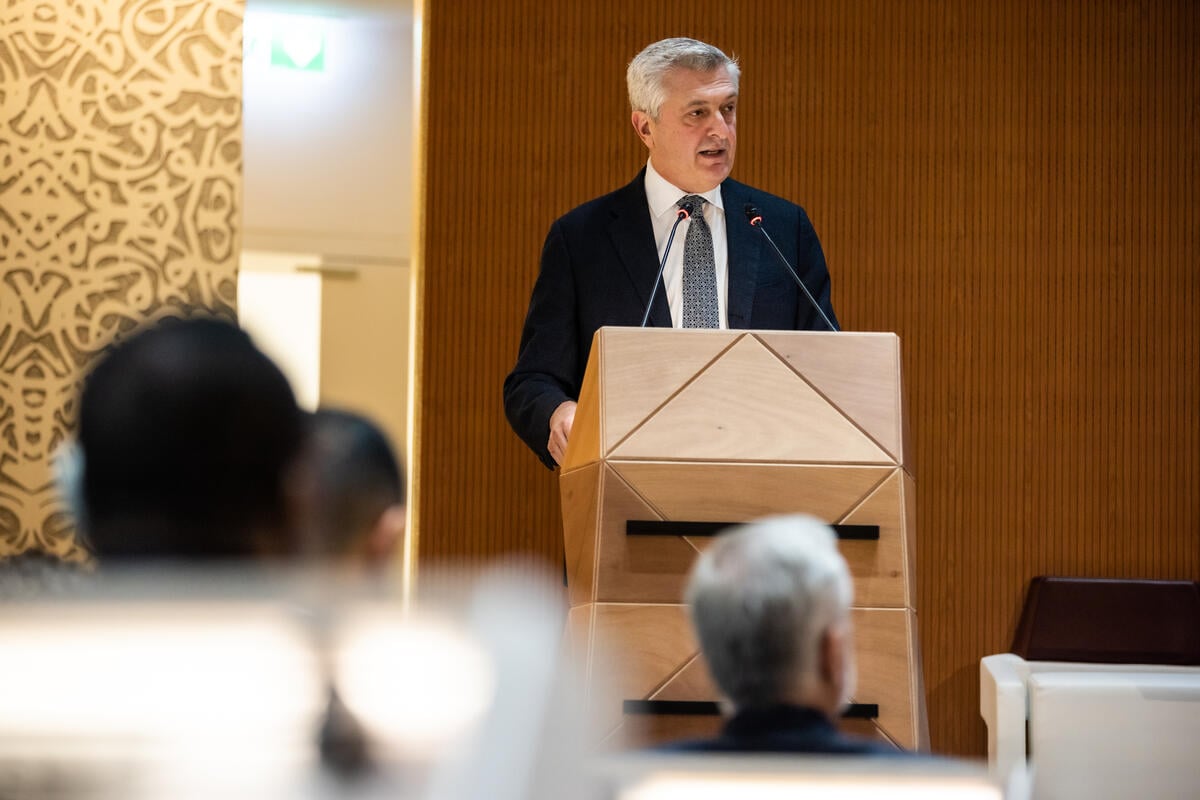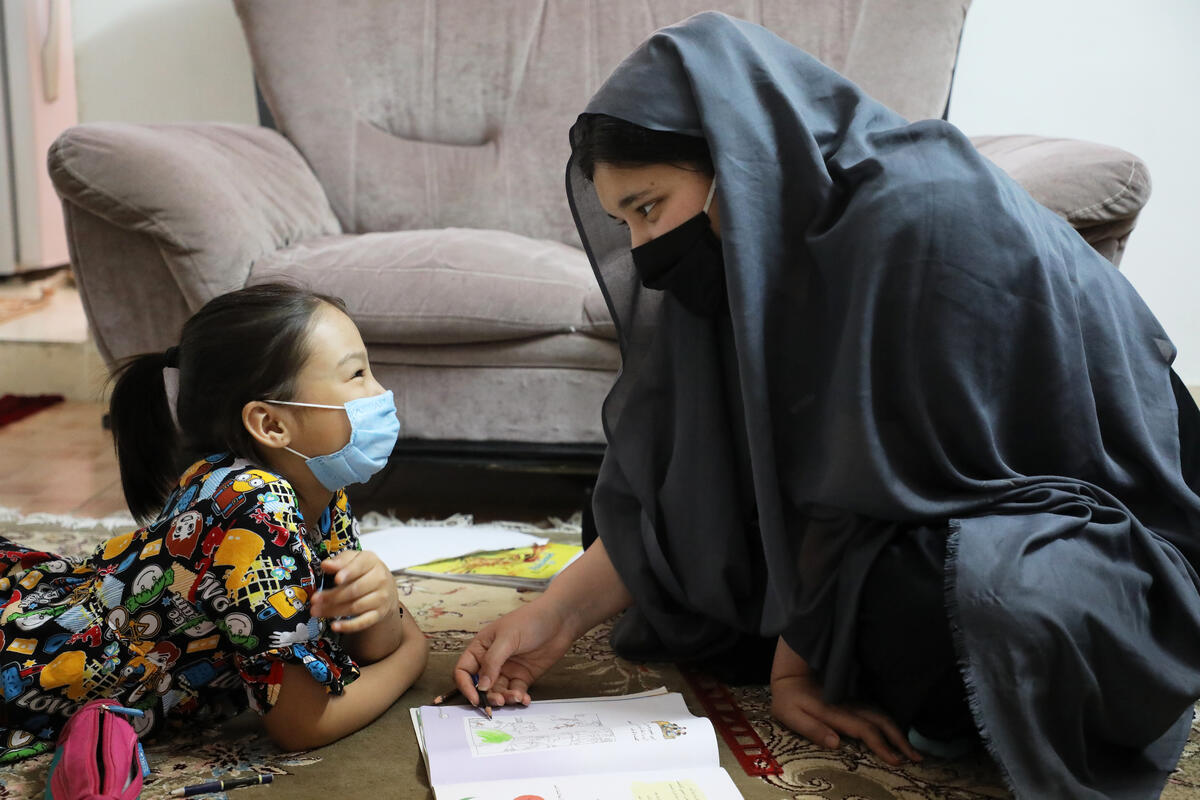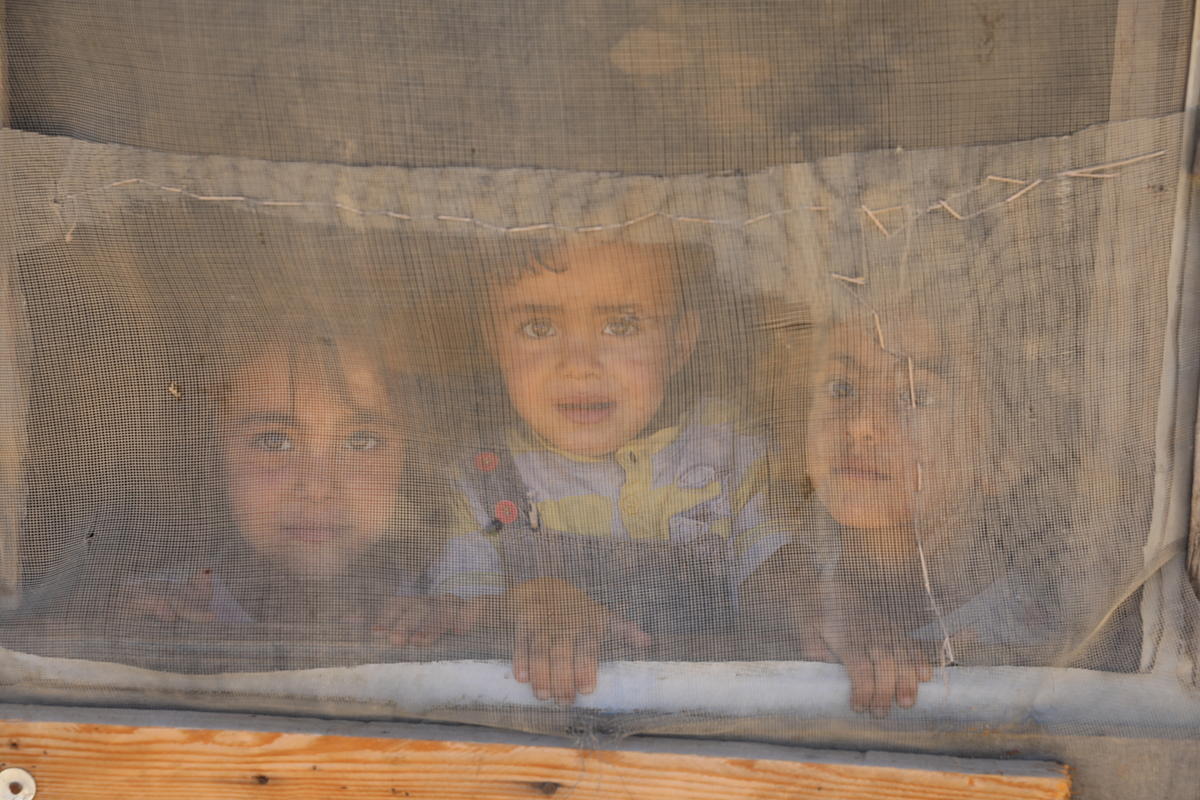Across Latin America, displaced people receive the COVID-19 jab

Across Latin America, displaced people receive the COVID-19 jab
Given his age and the fact that he is recovering from a serious surgery, Edgar Ramírez, a 75-year-old Venezuelan, would be particularly at risk if he contracted COVID-19.
Back home in Venezuela, Edgar suffered an accident that left him unable to walk and required a type of surgery not available in his country – where widespread food and medicine shortages, spiralling inflation and violence have forced millions of people to flee in recent years. Edgar travelled by boat to neighbouring Guyana to undergo the operation and was recovering when the coronavirus pandemic hit Latin America.
Like so many other people around the world, he spent months worrying about contracting the potentially deadly virus. That is until this March, when he became one of the first Venezuelans in Guyana to get the COVID-19 jab as part of a tiered rollout for priority groups.
“It’s important that all people can be vaccinated,” said Edgar, who is among an estimated 23,000 Venezuelans currently living in the country. “It’s great that Guyana has granted us [Venezuelan refugees and migrants] access to the vaccine. I’m very grateful.”
With over 12,000 COVID cases and more than 290 deaths as of late April, the small, sparsely populated nation on the continent’s northern coast has struggled to curb the spread of the virus. The government initially decided to include all those over age 60 in its vaccine rollout and subsequently extended eligibility to everyone over age 18, regardless of their migratory status.
“It’s important that all people can be vaccinated... I’m very grateful.”
Home to five out of the 15 countries worldwide with the highest number of deaths from COVID-19, Latin America and the Caribbean are among the regions hardest hit by the ongoing pandemic, which has also sparked a drastic economic downturn and widespread unemployment. Experts say it is crucial that national vaccination programmes include the maximum number of people possible. In addition to Guyana, most countries in the region have included refugees and other displaced people in their vaccination rollouts, but challenges remain in some countries for asylum seekers and those without regular migratory status. UNHCR, the United Nations Refugee Agency, has been working with forcibly displaced people across the region to raise awareness about national vaccination campaigns and help those eligible to register to get the jab.

In Ecuador, getting the jab allowed Javier Moya, a 42-year-old Venezuelan hospital worker, to finally breathe a sigh of relief after more than a year working in a COVID-19 ward.
Javier, a former medical devices salesman who fled Venezuela in 2017, worked a series of odd jobs in the Ecuadorian capital, Quito, before landing steady employment as an aide in a local hospital. When, at the beginning of the pandemic, the wing where he worked was converted into a COVID-19 ward, Javier felt panicked by the thought that if he were to be infected, he could spread the virus to his wife, daughters and infant grandson.
“When they told us that we aides would have to work inside the ward, it came as a shock because we were so scared of the virus,” Javier recalled, adding that “the first day was absolutely terrifying.”
“I feel much safer... All people should get the vaccine, no matter what nationality you are.”
Javier has been scrupulous about following the safety protocols, scrubbing his hands obsessively and suiting up each and every time he goes into the ward and showering when he comes out, and he has yet to fall ill with coronavirus. Still, when he received a call saying that, as a frontline medical worker, he was eligible to get the jab, he jumped at the chance.
“I was out doing the grocery shopping and I went running over to the hospital” to receive his first dose, he said. Now fully vaccinated, Javier says the immunization “gives you peace of mind.”
“I feel much safer, although you have to keep taking preventative measures such as avoiding crowded spaces and always continuing to wear your mask,” he said, adding that he hoped the other members of his family would also be vaccinated soon. “All people should get the vaccine, no matter what nationality you are. It’s absolutely essential.”
Venezuelan-born doctors and other front-line medical personnel, as well as elderly refugees, are also among those prioritized to receive the vaccine in Peru. Gladys Farfán, a physician who works at a hospital in the Amazonian border city of Madre de Dios, got the two doses of the jab in February and March.
“Every day I see people die, young and old. It’s psychologically exhausting,” said Gladys, who was forced to leave her hometown of Ciudad Guyana, in northern Venezuela, to seek chemotherapy for her mother because the treatment was no longer available in her home country. Initially, regulations in Peru had prevented her from working as a doctor, so she found a job in retail, then at a pharmacy and ploughed all her earnings into her mother’s chemotherapy. Despite the treatment, her mother succumbed to her cancer.
The pandemic opened an unexpected opportunity for Gladys, with the Peruvian government’s decision to allow Venezuelan doctors to temporarily bypass validation from the country’s medical college in order to shore up the ranks of urgently needed medical personnel.
“Doctors are working more than 190 hours a month, and we still cannot meet the needs,” Gladys said, adding that getting vaccinated has allowed her to be better at her job. “I now feel more confident and more importantly, closer to my patients.
“Now I can give them the care they deserve, with more affection and closer support, which is part of what people need to get better,” said Gladys, who is saving up to finally bring her children, whom she had to leave behind in Venezuela, to Peru. “With the vaccine, I feel hope because I can continue with my dream of helping other people.”









